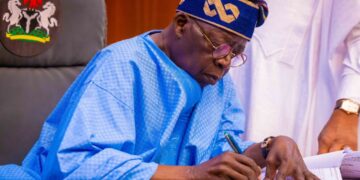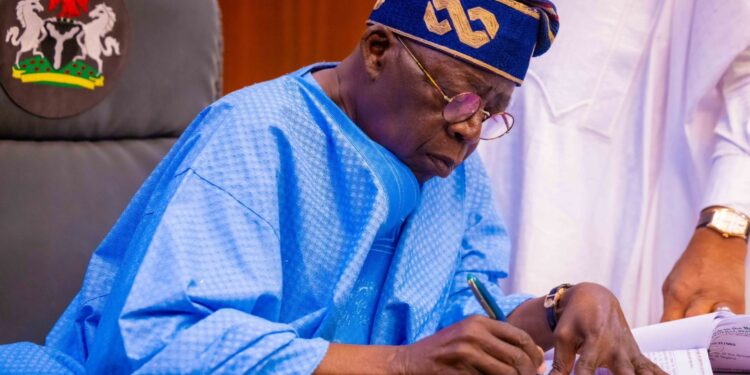By John Ikani
Months after mounting pressure for a cabinet overhaul, President Bola Tinubu removed five ministers on Wednesday in a significant shake-up aimed at reshaping his administration.
Alongside the dismissals, Tinubu reassigned 10 ministers to new portfolios and nominated seven new faces for Senate approval, marking a major reorganization.
Back in August 2023, Tinubu had brought in 48 ministers, just three months after taking office. The appointments were quickly confirmed by the Senate. However, one of the ministers, Betta Edu, was suspended earlier this year, and Simon Lalong moved on to the Senate.
The growing discontent among Nigerians, who have been grappling with high inflation, economic challenges, and worsening security, fueled calls for a cabinet reshuffle. Many had expressed frustration with the perceived inefficiency of some ministers.
Presidential spokesperson Bayo Onanuga hinted in September that a reshuffle was in the works, though no specific timeframe was given at the time.
On Wednesday, during the Federal Executive Council meeting, the President let go of Uju-Ken Ohanenye from the Ministry of Women Affairs, Lola Ade-John from Tourism, Tahir Mamman from Education, Abdullahi Gwarzo from Housing and Urban Development, and Jamila Ibrahim from Youth Development.
In their place, Tinubu nominated Bianca Odumegwu-Ojukwu for Minister of State for Foreign Affairs and Nentawe Yilwatda for Humanitarian Affairs and Poverty Reduction, filling the position left by suspended Betta Edu.
He also proposed Maigari Dingyadi for Labour and Employment, Jumoke Oduwole for Industry, Idi Maiha to head the newly created Livestock Development Ministry, Yusuf Ata for Housing and Urban Development, and Suwaiba Ahmad for Education.
Restructured Ministries Earlier that same day, Tinubu abolished the Ministry of Niger Delta Development and replaced it with a new Ministry of Regional Development to streamline the operations of regional development commissions.
This revamped ministry will oversee the Niger Delta Development Commission as well as those for the South East, North East, and North West regions.
Additionally, Tinubu dissolved the Ministry of Sports Development, transferring its duties to the National Sports Commission, which he tasked with bolstering Nigeria’s sports economy.
In another move, the Federal Ministry of Tourism was merged with the Ministry of Arts and Culture to form the Federal Ministry of Art, Culture, Tourism, and the Creative Economy.
Sunday Dare’s Comeback Former Sports Minister Sunday Dare, who served under the Buhari administration, returned to the fold in a new capacity as part of the reshuffle.
“The appointment of Shehu Dikko as Chairman of the National Sports Commission.”
“The appointment of Sunday Akin Dare as Special Adviser to the President on Public Communication and Orientation, working from the Ministry of Information and National Orientation,” Tinubu confirmed.
The President thanked the outgoing ministers for their contributions to the country and wished them well in their future endeavours.
Addressing the newly appointed and reassigned ministers, he urged them to see their roles as a commitment to the nation’s progress, underscoring the administration’s determination to steer Nigeria toward lasting growth.
He called on them to fully invest their skills and effort into achieving the government’s key priorities.




































